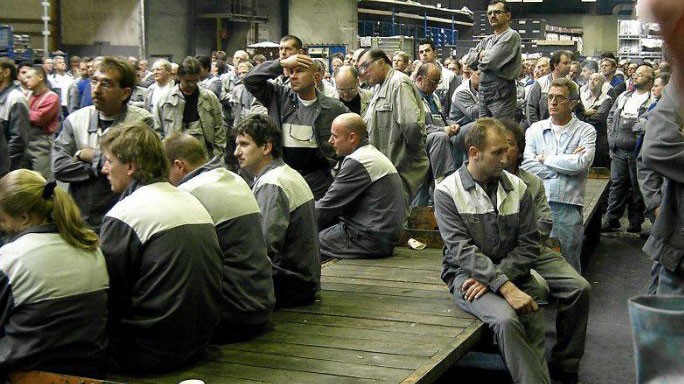Germany is seven months into its new minimum wage, but not everyone is happy. The government has now admitted that lobbyists from a number of different sectors had urged it add exceptions to the new rule that no one in the country should earn less than 8.50 euros ($9.40) an hour.
The information, shown to DW on Thursday, emerged thanks to an official parliamentary request by the German Left party. Particularly persistent were representatives of the farmers' and newspaper publishers' associations, who met government representatives a total of 15 times in the months leading up to the law being passed in parliament.
The pressure seems to have been effective - both the agriculture sectors and the newspaper sectors won delays in implementing the minimum wage. Temporary farm-workers can be paid below minimum wage unto the end of 2016, while newspaper deliverers can be paid less until the end of 2017.
"The economic lobbyists have made sure that entire sectors have been left behind by the minimum wage," Left party parliamentarian Michael Schlecht said in an emailed statement. "Particularly the lobbyists of the publishers' and the farmers' associations clearly felt a lot more need to speak to the government during the lawmaking process."
"The result is well known," he added. "Hundreds of thousands of people did not benefit from the introduction of the minimum wage at the start of the year."
DW





